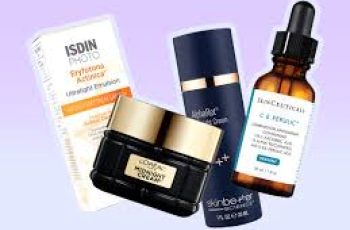
Best Water to Wash Your Face With
Which type of water to wash my face with?
You have many different types of water to wash your face with. This may depend on where you live and what type of water is in your tap water. Do you want to wash water with tap water or bottled water? Should you plunge it in an ice bath or use hot water? This blog discusses everything you need to know about washing your face with water.
Which water to use to wash your face depends upon your Baumann Skin Type and what other skin care products you are using.
Choices of water to wash your face with
You can also choose from distilled water, bottled water, filtered water, micellar water, thermal spring water, or thermal spa water?
You can learn about these different types of water at this link.
Best water to wash the face
Best Water Temperature To Wash Your Face With
Lukewarm water is the best temperature to use to wash your face. Too cold or too hot can cause inflammation.
Never use very hot water on your face. Hot water has these bad effects:
Inflammation
Injures your skin barrier
Can cause a burn if extremely hot
Here is a link to some tips about cleansing your face.
Is ice safe for your skin?
Ice Water Facials
Is Ice Good For Your Face?
Are you thinking about dunking your face in cold water? It’s only good for the reasons discussed below. It won’t get rid of acne and may interfere with how well your skin care products work by decreasing blood flow to your cold skin.
Read more to see the disadvantages of dipping your face in cold water.
Ice bath for Face
Dipping face in very cold ice water has become a trend in skin care. What are the benefits and disadvantages of dipping face in ice water?
If you should use an ice bath for your face depends upon your Baumann Skin Type and skin concerns.
When an ice bath for the face is good?
1- 24 hours after dermal fillers to prevent bruising
Immediately after a heat burn
When face is flushed and feels hot
When sunburned
Disadvantages of ice facials and ice baths for the face:
Can irritate rosacea
can dry skin by hurting the barrier
Keeps products applied after from absorbing and penetrating into the skin
Ice Face Roller
Ice face rollers are interesting, fun, and fell good on the skin, but they are not good for most skin types.
The best reason to use an ice roller on the face is to prevent swelling and bruising after a cosmetic procedure such as Botox or dermal fillers. They may help soothe an allergic reaction on the skin.
These ice rollers do not help acne or rosacea and may make sensitive skin worse.
Is Cold water good for acne?
Tap water, thermal spa water, micellular water, filtered water or distilled water to wash face?
Whether or not you should splurge and take the extra step to rinse your cleanser off with special water depends upon two things:
Do you have rosacea, eczema or hypersensitive skin?
What is the water like where you live? Try to Google “minerals in the water in X city” to see if you can find out what kind of water your town or city has before you spend extra money on water.
Minerals In Water Chart
Bottled Water or Carbonated Water to Wash Face?
The minerals that are best for your skin depend upon your Baumann Skin type. If you have sensitive skin, look for strontium and selenium in bottled water and avoid high levels of calcium and magnesium. Here are the amount of minerals in various bottled water that can be used to cleanse the face.
Tap Water: Hard Water vs Soft Water in To Cleanse Face?
Hard water has a lot of calcium and magnesium and other minerals that can cause a few problems for your skin.
Soft water has much fewer minerals in it. Soft water sometimes makes you feel like your skin is not clean, but it is more gentle on your skin.
When given a choice, soft water is better for your skin. Other water options are thermal spa water, bottled water and filters water. Buying a water filter is the cheapest and most practical option. This can be placed on the sink faucet or in the shower. Water filters are a great option if you have eczema and other types of sensitive skin.
Hard water on the skin
Effects of Hard Water on Skin
Calcium and magnesium react with the detergents in your cleansers making the detergents more irritating to your skin
Hard water damages your skin barrier
The minerals in water can react with the potent ingredients in your skin care products causing chemical reactions and undesired results
Rinsing your cleanser off of your skin with a micellular water, thermal water, or filtered water will prevent these problems and help prevent inflammation in rosacea, eczema and other types of hypersensitive skin.
What Water Should I Use to Wash my Face If I have Sensitive Skin?
Women Splashing Face With Water
Very sensitive skin types should use room temperature thermal spa water to wash the face.
Mildly sensitive types can use bottled water if skin is irritated. If your tap water is not very hard (not many minerals) then you can use tap water.
Do not use ice water or plunge in an ice bath. It is not necessary to do a second rinse with cold water.
Here are some thermal spa waters that rosacea-prone and very sensitive skin types can use:
What Water Is Best To Wash Face Before Using a Serum?
Minerals in water can react with ingredients in face serums. If you choose to use expensive face serums, you should consider using a water that will not interfere with the serum’s ingredients such as bottled water. In some cases, thermal spa water is a good option. (It depends on what type of serum you are using.)
Should I use thermal spa water or micelle water when using a serum?
Thermal water is the most expensive water to rinse your skin with, but it may have soothing ingredients like selenium that soothe your skin. Which minerals are in thermal spa water depends upon the brand. I only recommend splurging on thermal spa water when you have inflamed skin.
Should I use filtered water to rinse my skin before using a serum?
Yes!! If you live in a city with hard water, you can buy a water filter that removes the minerals from your water. These are usually inexpensive and easy to find. This will help our expensive serums work better because minerals in hard water can reduce the effectiveness of serums.
What temperature of water do I use to wash my face ? Hot or Cold Water?
Using water that is too hot will increase penetration of skin care ingredients but can lead to irritation from detergents in cleansers. Cold water may decrease absorption of the ingredients in skin care products, so you lose benefits. Our dermatologists recommend using water warm but not hot water to wash your face.
Is water alone enough to wash your face?
Water only face washing
There are benefits of not washing your face with a cleanser in the morning.
If you have very dry skin or active rosacea, it may be good for you to only wash your face with water in the morning and skip using a cleanser. This will help protect your skin barrier and decrease inflammation.
What to do instead of washing your face i the morning is to splash lukewarm water on your face and pat dry gently with a soft towel.
Whether or not your skin care routine should include your face with only water depend upon your Baumann Skin Type.
Skin Tip About Splashing Face with Water
The water you splash on your face to wash off your cleanser is more important that the water you are using to apply your cleanser. This has been shown in studies. I discuss this in Ch 40 of my bestselling textbook Baumann’s Cosmetic Dermatology (McGraw Hill 2022).
Want to learn more interesting skin care facts and tips? Visit us on social media or come ask Dr. Baumann questions on Reddit.


